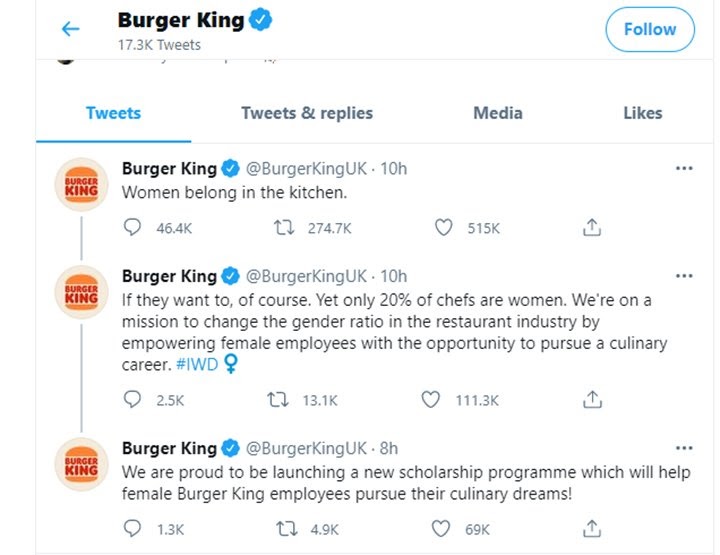Brands know that controversy comes with the territory so preparation is often made for such eventualities. This is why brands spend a huge portion of their marketing budget on online and offline reputation management. As customers demand more from the brands they engage with, brands know they must take a stand, sometimes on controversial issues. When Nike took a stand on racial injustice with its ad campaign featuring NFL star, Colin Kaepernick, it got a lot of backlash from viewers but Nike went on to record higher sales in North America and improved its reputation as a socially responsible brand. While using controversies isn’t a new marketing tactic, is it a necessary one? Should brands court controversy, risking years of good reputation, especially when it can affect the bottom line? Here’s a better question, does it work? Yes … and no.
Controversy for controversy sake doesn’t always work but when brands take a stance on controversial issues as a part of their social responsibility it helps to gain the attention of the public as well as put the company in a good light. These days being indifferent or standing on the sidelines of a social issue can damage the reputation of brands as quick as an unsuccessful controversial marketing tactic. A clear example is criticism that Nigerian corporates received for their silence over the ‘End Sars’ protests. So brands are more vocal about showing their support for social, environmental, and even political issues. Brands like Gillette in ‘We Believe: The Best Man Can Be’ and Nike in ‘For Once Don’t Do It’ campaigns are some of the campaigns that address controversial issues.
Again, if a brand falls under a controversial industry like high fashion, controversies are a good way to draw attention to the brand. The audience of this industry craves the outrageous, the audacious and controversial. From racy pictures to suggestive copies, brands like Tom Ford, Sisley and Gucci have used controversial ads to make millions of sales. Unfortunately, not all brands court controversies successfully.
Recently Burger King, a brand that is no stranger to controversy, intended to use a controversial tweet, “Women belong in the Kitchen” as clickbait to draw attention to its new culinary scholarship program for women.

This attempt to use controversy did not go down well with the public. Burger King had to offer an apology and delete the tweet because of the amount of backlash it was getting. Apparently, Burger King is no stranger to controversies, as they have made several failed attempts to use controversy in the past. We recommend that brands learn from their mistakes or those of their competitors and seek better ways to utilize controversies or steer clear of them completely.
How Do You Court Controversy for Your Brand?
Controversies are the quickest way to achieve top of mind awareness. When brands use controversial marketing tactics that evoke strong emotions in the audience, the brand is remembered for a long time and thus establishes a brand identity that leads to better sales if done right. Employing such tactics works best for brands that already have an established brand identity as they are usually best able to deal with the backlash that invariably comes with controversies.
Understand your audience: Some brands have audiences that are adventurous and wouldn’t mind if the brand got its hand a little dirty. For example, brands with a young demographic will have better success rates using controversies than ones with an older or a more professional audience. A knowledge of what your audience is receptive to will make all the difference.
Keep your brand personality and values in view: It’s also noteworthy that if your brand’s values don’t clearly align with whatever wave of controversial issues you decide to ride on, it may end up being a big flop. A rebellious campaign should help cement your values in the minds of your target audience. Whatever is worth doing, is worth doing well – including courting controversy.
Do your research: Being disruptive in whatever form is a cool thing to do. However, proper research puts things in perspective and enables you to take informed leaps. You will find that your strategy may change and your approach could become more effective.
Controversies are risky and with most risky ventures, you can only hope that it passes the intended message and gets the desired response from your audience. When brands take time to know their audience and research the results of similar campaigns among their competitors, then and only then should they court controversies. Has your brand ever taken the controversy route? Are there brand controversies you consider memorable? Kindly share with us in the comments.
Don’t forget to follow Anakle on social media via Twitter, Instagram, and LinkedIn for updates on digital domination and growth.

